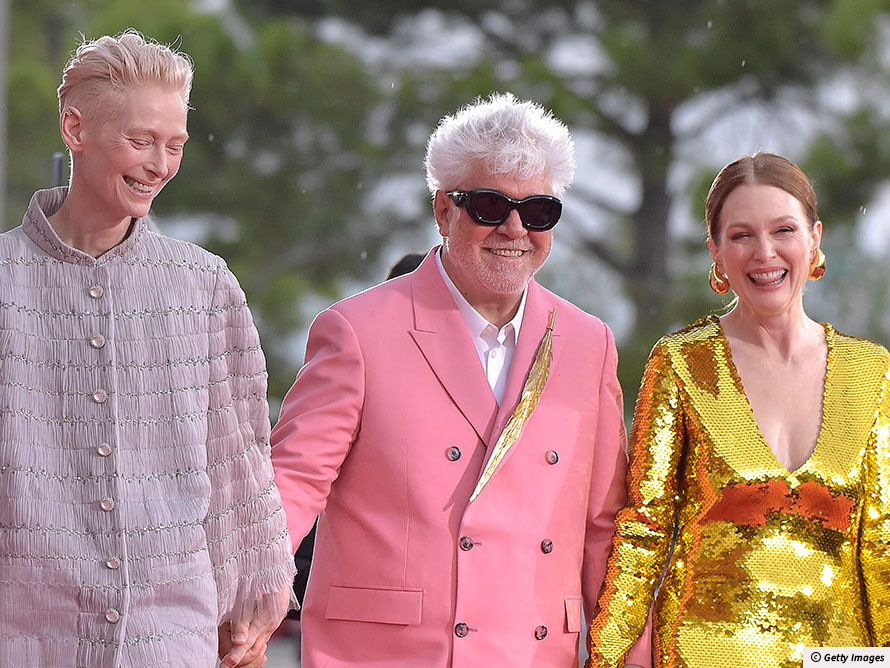Should euthanasia be a human right? A sensational new film makes a quiet argument for universal assisted dying. But some believe that allowing euthanasia places us on a slippery slope towards legal murder.
New movie sparks debate about death
 Life-enhancing?: Tilda Swinton, Pedro Almodovar and Julianne Moore (left to right, above) celebrating the new film The Room Next Door at the Venice Film Festival this week.
Life-enhancing?: Tilda Swinton, Pedro Almodovar and Julianne Moore (left to right, above) celebrating the new film The Room Next Door at the Venice Film Festival this week. Glossary
Euthanasia - The deliberate and painless ending of a life.
Ipsos - Ipsos provides election research and forecasting services to help stakeholders navigate these events.
Hippocratic Oath - An ancient Greek ethical code for doctors still used by many medics today. In his new oath, Dr Jordan Shlain focuses on patient data and making medical language more accessible.
